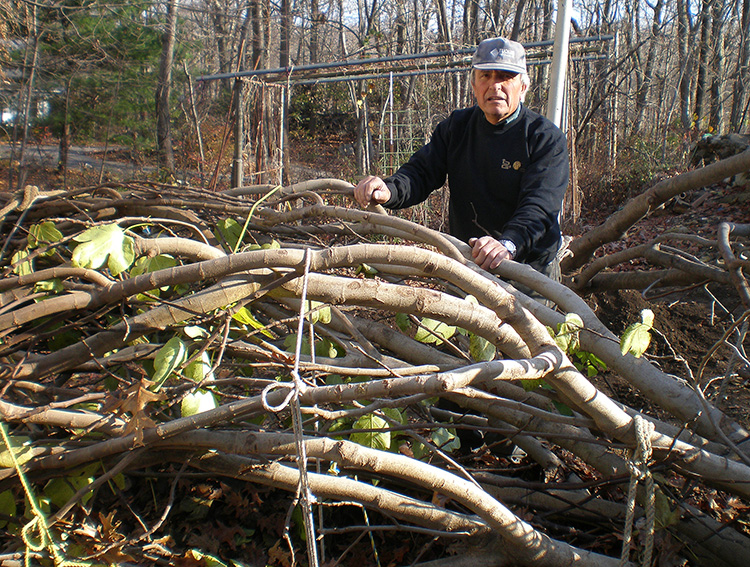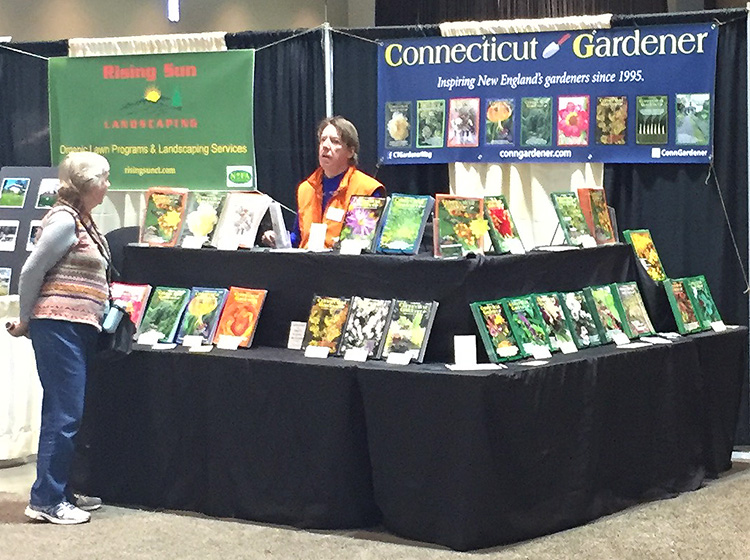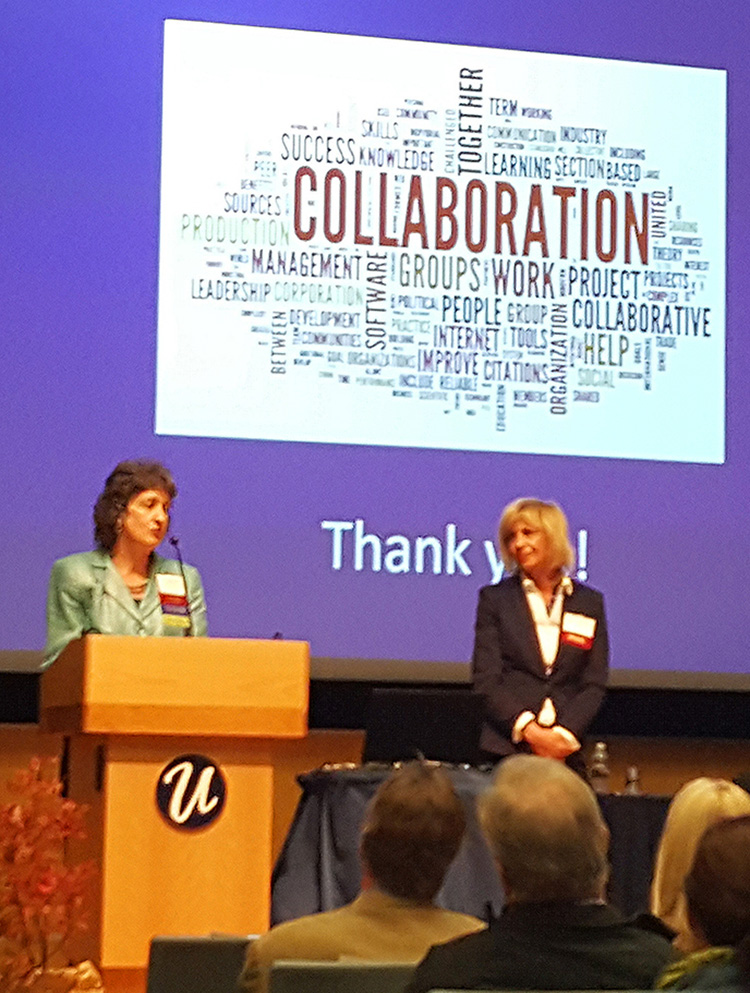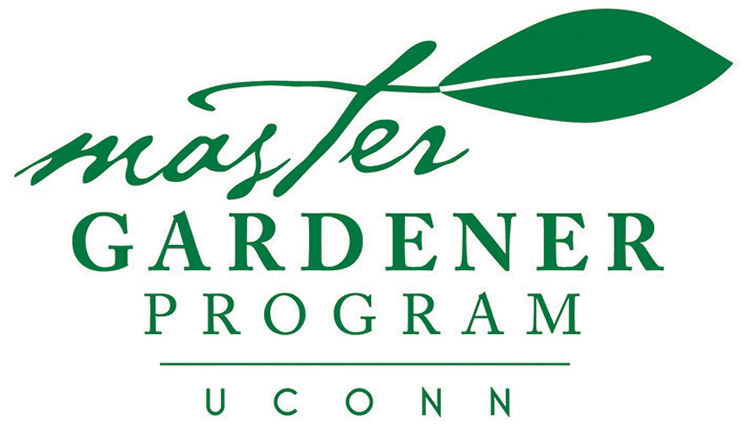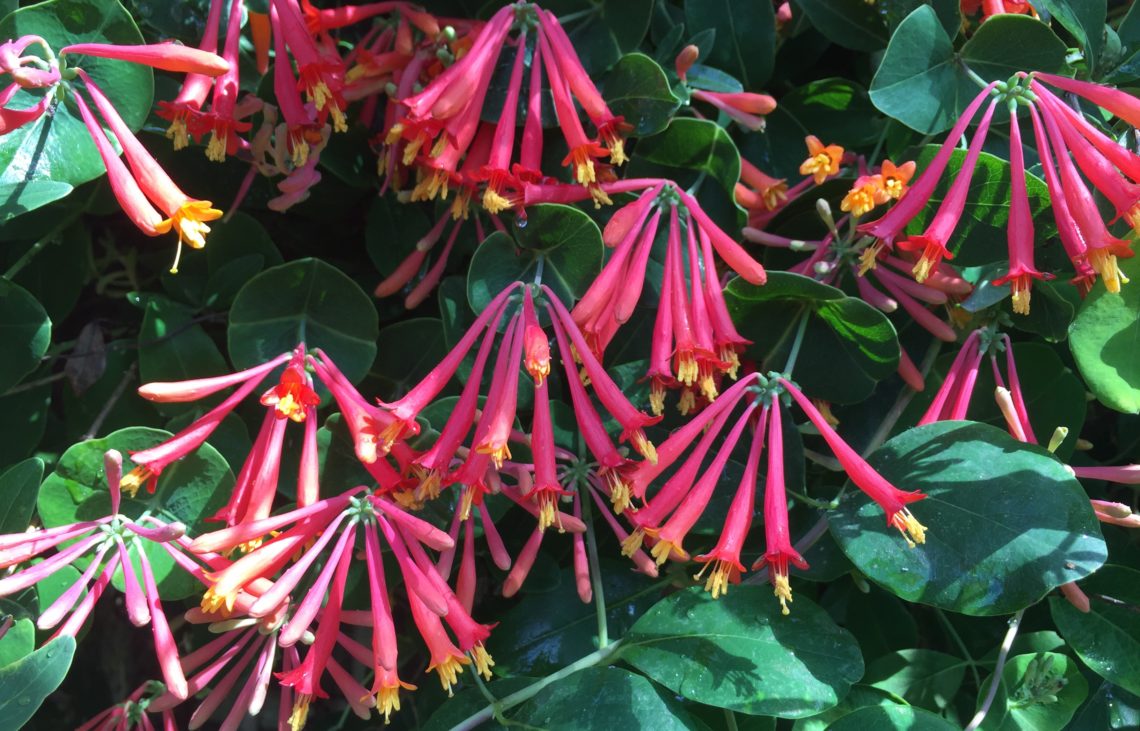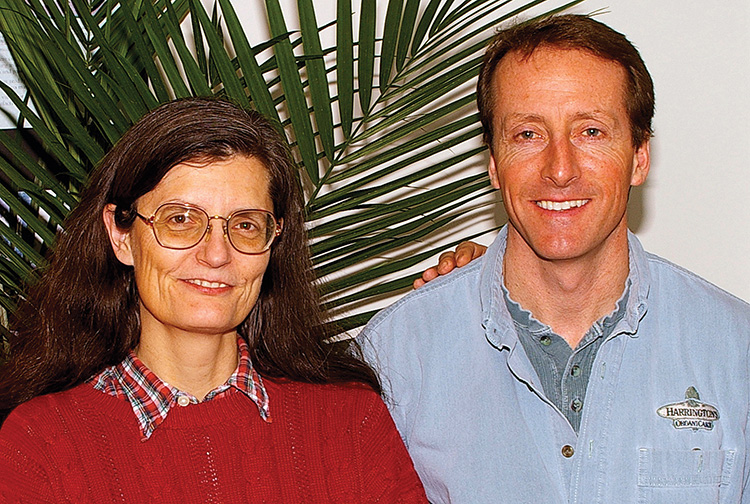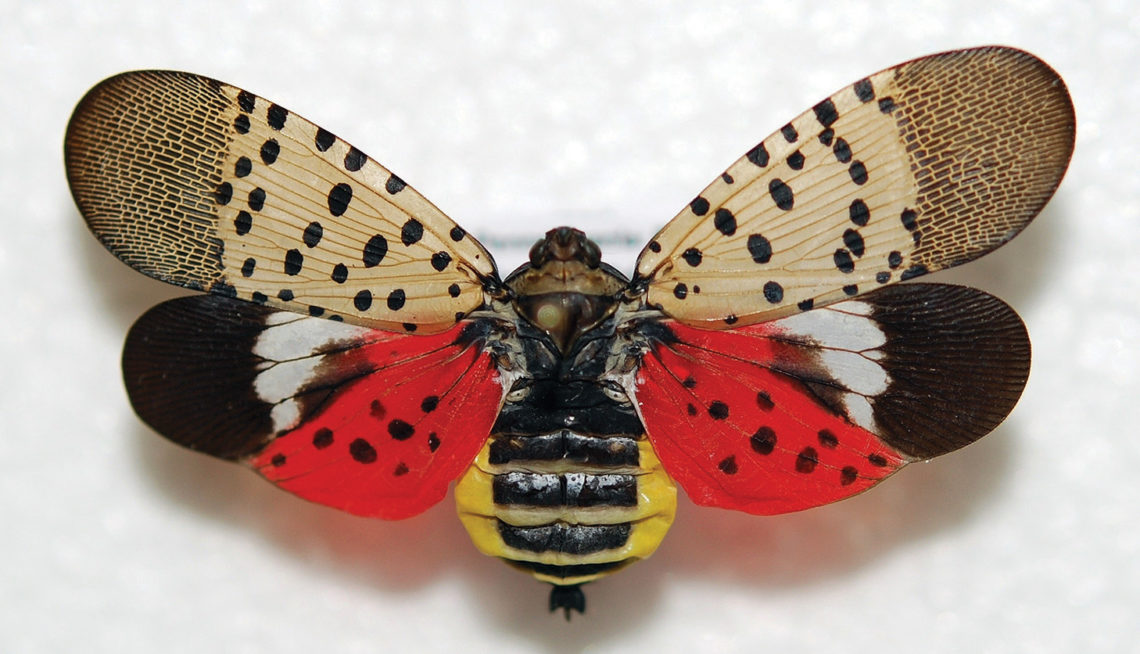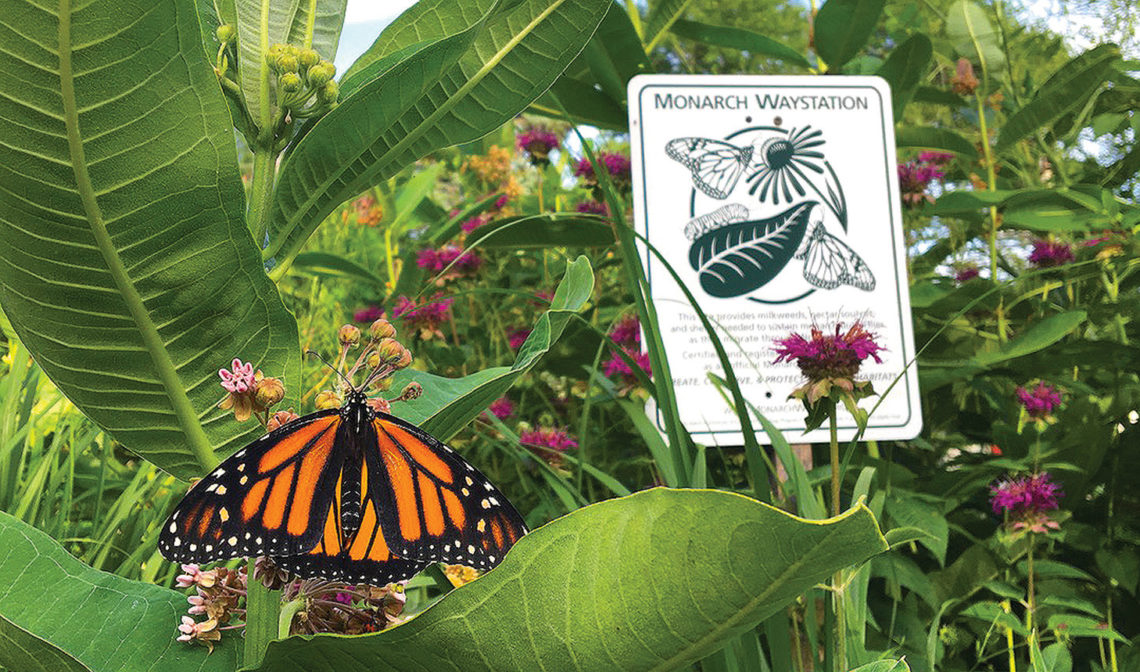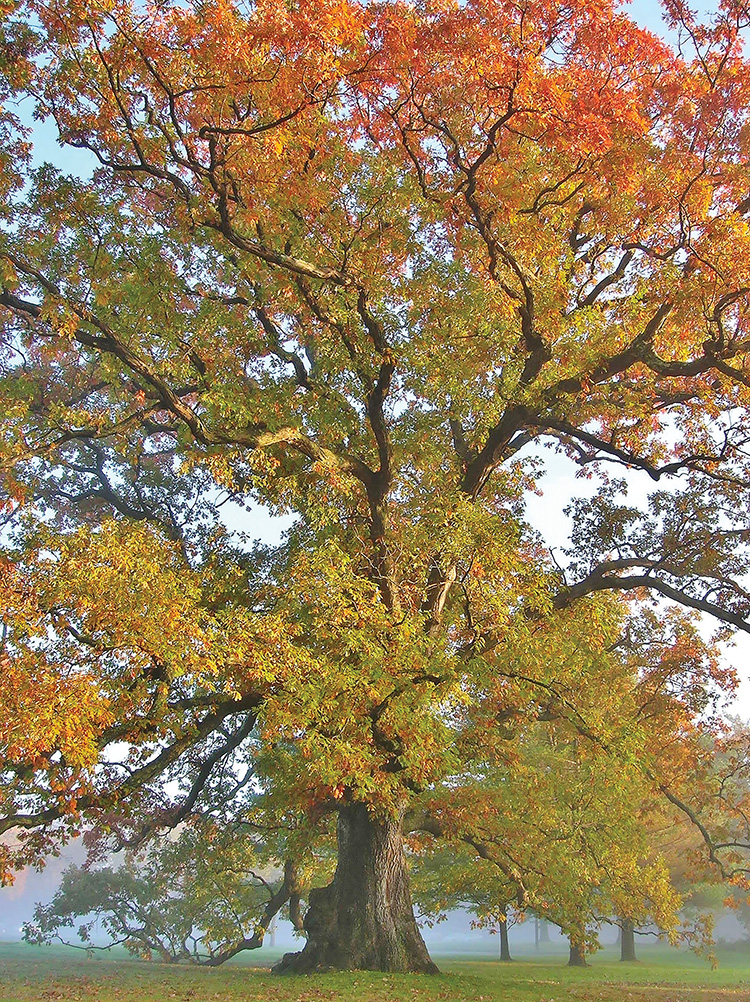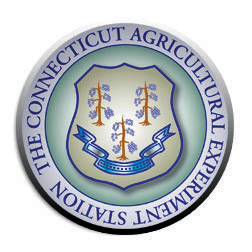By Anne Rowlands SEPT-OCT 2012 – Obviously I grew up in a bit of a bubble. Until recently, I’ve been unaware of the robust fig-growing culture in Connecticut. Though I’ve enjoyed my fair share of fig cookies, dried figs, and the fresh fruit that occasionally becomes available in the supermarket, I never suspected that growing them here was a possibility. I figured they were as unsuitable to this climate as citrus trees. But, while working on this story, I found that these little trees are everywhere – in front yards, back yards, city streets and parking lots. So, for those of you with no experience with figs, here’s something to…
-
-
Join Us at the Flower & Garden Show in Hartford Feb. 21-24
Once again, Connecticut Gardener will be at the Connecticut Flower & Garden Show in Hartford this year. We’ve been there every year since 2010 and Pamela Weil, who founded CG 25 years ago, had a booth for years before our time (we think since the inception of the show!). Look for us in Booth 831, the same great location at the crossroads (see map below). The show runs from Thursday, Feb. 21 through Sunday, Feb. 24 at the Connecticut Convention Center in downtown Hartford. The Marriott Hartford Downtown is right next door. Here are the hours of the show: Thursday (10-7), Friday (10-8), Saturday (10-8) and Sunday (10-5). Purchase tickets…
-
Happy Retirement Donna!
Donna Ellis, senior Extension educator in the Dept. of Plant Science & Landscape Architecture at the University of Connecticut, is retiring today. She’s been there since 1990 — that’s a long career! Donna is diligent and super efficient, and it’s amazing how much she’s accomplished with such grace and good humor. An unsurpassed planner and a delightful person, here are some of her contributions: She was coordinator of UConn’s Integrated Pest Management (IPM) program and taught a course on agricultural and horticultural plant pests. She initiated a Beetle Farmer Program to train volunteers to raise beneficial insects as biological control agents for the invasive plant purple loosestrife (Lythrum salicaria), and collaborated…
-
Master Gardener New Haven County Program Coordinator
The UConn Extension Master Gardener Program is seeking applications for the position of Master Gardener New Haven County Program Coordinator. This is a 16‐hour‐per‐week position and is a temporary, six‐month appointment. Renewal is optional pending coordinator review and availability of program funding. Responsibilities include but are not limited to: provide leadership for the base county Master Gardener program. Successful candidate will coordinate staffing of program mentors, volunteers and interns; coordinate and assist with annual classroom portion of the program; work with UConn Extension center/ county‐based faculty and staff, as well as university based faculty and staff as needed. Will also need to work with allied community groups and Extension partners…
-
Welcome to our new website!
We switched to a WordPress-based website on Jan. 4, 2019. The URL (website address) will remain the same. We hope to bring you a more interactive and streamlined website and hope you’ll be able to find everything you need during the transition. Your feedback is welcome!
-
Todd Harrington – Organic Pioneer
By Will Rowlands NOV-DEC 2018 – Todd Harrington is the owner and driving force behind Harrington’s Organic Land Care in Bloomfield. Todd grew up in Canton and worked for his father’s commercial landscape company after school and on weekends. He studied mechanical engineering at UConn for two years and then took a few years off to work for tree care companies. After resuming his studies at UMass, he received a degree in arboriculture and forestry. He started a tree care division for his father’s business in 1987. Three years later he started his own business, Organicare. In 1997, he changed the name to Harrington’s Organicare and then again to Harrington’s…
-
Spotted Lanternfly in New Jersey
2018 – Spotted Lanternfly (Lycorma delicatula) has been reported in New Jersey less than 100 miles from Connecticut. According to USDA APHIS, “Nymphs feed on a wide range of plant species, while adults prefer to feed and lay eggs on tree of heaven (Ailanthus altissima). If allowed to spread, this pest seriously harm the country’s grape, orchard and logging industries.” For more information just do a search for Spotted Lanternfly USDA
-
Monarch Update
By Diane St. John SEPT-OCT 2018 – The summer of 2018 has turned out to be a very good year for monarch butterflies in our state. The milkweed has had a great growing year and the monarchs arrived earlier than normal. I found my first eggs right after we had the damaging storms in May and am wondering if they were carried here by wind rather than their normal northern migration. At Natureworks in Northford I saw monarch eggs on our display garden milkweed in May, a pleasant shock as I had not seen an actual butterfly and would not see one for several more weeks I have talked with…
-
The Importance of Trees
By Jeffrey Ward, CAES NOV-DEC 2018 – Coming from the corn fields of the Midwest 30 years ago, I was immediately struck by how forested Connecticut was, and still is. We live in a tree lovers paradise. Did you know that Connecticut’s urban communities have the highest tree cover of any state at 62%? It seems Nutmeggers have a natural yearning for homes nestled on tree-lined streets, for parks shaded by majestic trees, and for avenues flanked by leafy colonnades. The question arises – why? What are the benefits that trees provide us, both tangible and perceived, that make us want to live surrounded by them. Trees are important to our…
-
Research at The Ag Station
JULY-AUG 2018 – It’s hardly a secret that The Ag Station is my favorite organization – but for all they contribute to science and society, many residents have no clue about what they do. At the very least, you – as a gardener and student of the natural world – should get acquainted with their work. Some Station research projects are long-term, like the new crops program and tick and mosquito monitoring. Others are more focused, such as research into nanoparticles and biochar. Here are some quick notes about several subjects being studied — truly a miniscule sampling of The Ag Station’s ongoing work at its New Haven, Hamden, Windsor…
